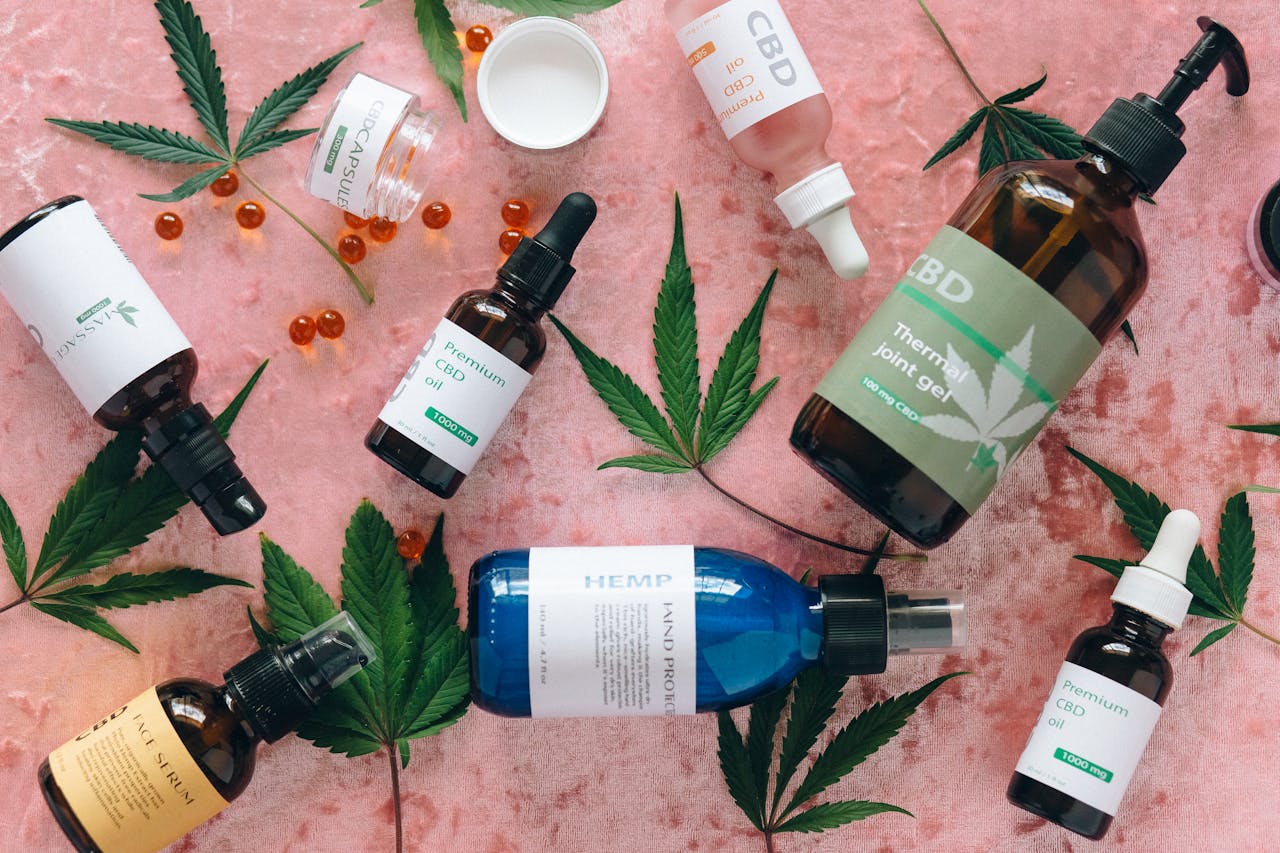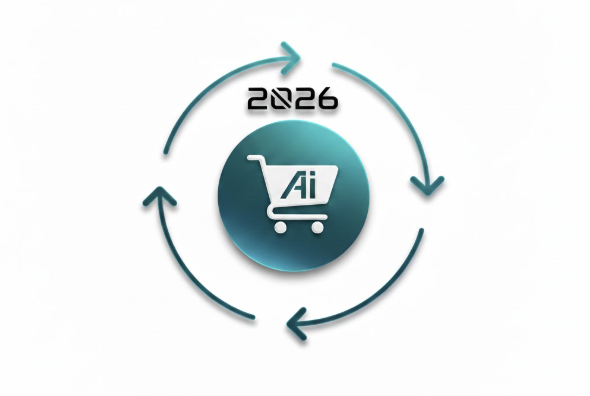AI Brand-Safety Checklist for CBD & Hemp Ecommerce

Key Takeaways
- Legal compliance is critical - AI must understand federal, state, and local CBD/hemp regulations to avoid violations
- Age verification is mandatory - AI should never recommend products to minors or bypass age-gate requirements
- Health claims restrictions - AI must avoid making medical claims or therapeutic promises about CBD products
- Geographic awareness is essential - AI needs real-time knowledge of shipping restrictions and state-specific laws
- Lab testing transparency - AI should proactively surface COAs and third-party test results for product authenticity
- Payment processing sensitivity - AI must guide customers to compliant payment methods and avoid flagged transactions
- Platform compliance varies - AI responses must adapt to different marketplace and advertising restrictions
The CBD and hemp industry operates in one of the most complex regulatory environments in ecommerce. While the 2018 Farm Bill legalized hemp-derived CBD federally, a patchwork of state laws, payment processor restrictions, and platform policies create a minefield of compliance challenges.
One wrong AI recommendation about dosage, an inappropriate suggestion to an underage user, or a misguided health claim can result in regulatory violations, payment processor shutdowns, or complete platform bans. Your AI isn't just representing your brand—it's navigating a legal landscape where mistakes have serious consequences.
Here's your essential checklist to ensure your AI interactions protect your business while building trust with customers in this heavily regulated space. Learn more about the unique challenges of ecommerce in regulated industries and how AI can help navigate compliance.
1. Age Verification and Minor Protection
Your AI must never circumvent age verification systems or suggest products to users who haven't confirmed they're 21+ (or 18+ where applicable). Build guardrails that immediately redirect underage users to educational content about hemp rather than product recommendations. AI that understands your brand means AI that protects your legal standing from day one.
2. Geographic Compliance Awareness
Train your AI to understand the complex web of state and local CBD laws. It should never recommend shipping to states where CBD is prohibited, suggest products with THC levels illegal in specific jurisdictions, or ignore local licensing requirements. Built-in guardrails keep your operations compliant across all 50 states. Understanding the FDA's complex regulatory framework is essential for compliance.
3. Health Claims and Medical Disclaimer Compliance
Your AI must be programmed to avoid making therapeutic claims, medical promises, or FDA-unapproved health statements. Instead of saying "this CBD will cure your anxiety," train it to use compliant language like "customers report this product supports their wellness routine." Learn how AI improves product recommendations while maintaining compliance.
4. Lab Results and COA Transparency
Configure your AI to proactively surface Certificate of Analysis (COA) documents and third-party lab results for every product recommendation. When customers ask about potency, purity, or safety, your AI should immediately provide access to test results rather than making claims. Trustworthy AI interactions are rooted in verifiable data, not marketing promises.
5. Dosage Guidance Without Medical Advice
Your AI should provide general dosage information based on product labels while clearly stating it's not medical advice. Train it to recommend customers consult healthcare providers for personalized guidance and never suggest specific amounts for medical conditions. This approach maintains helpfulness while avoiding liability.
6. Payment Method Compliance Navigation
Since many traditional payment processors restrict CBD transactions, your AI needs to guide customers to compliant payment options without frustration. It should clearly explain why certain payment methods aren't available and seamlessly direct users to accepted alternatives. Research shows that effective conversion rate optimization includes removing payment friction.
7. Platform-Specific Messaging Adaptation
Train your AI to adapt its language based on the platform or channel. What's acceptable on your own website might violate policies on social media, marketplaces, or advertising platforms. Your AI should understand these nuances and adjust messaging accordingly to prevent account suspensions or ad rejections.
8. Product Authenticity and Source Verification
Your AI should never make claims about product sources, farming methods, or manufacturing processes that can't be verified. When customers ask about organic certification, extraction methods, or hemp origins, your AI must reference only documented, verifiable information from your product database.
9. Shipping Restriction Transparency
Configure your AI to immediately inform customers about shipping restrictions based on their location. It should never allow users in restricted areas to add products to cart, and must clearly explain why certain products can't be shipped to their address. No surprises, no hallucinations, no legal complications.
10. Third-Party Marketplace Compliance
If you sell on multiple platforms, your AI needs to understand each marketplace's specific CBD policies. Amazon prohibits CBD entirely, while other platforms have varying restrictions on product types, claims, and advertising. Train your AI to adjust recommendations and language accordingly. Learn how AI improves product search across different platforms.
11. Advertising and Marketing Compliance
Your AI should never generate content that violates advertising guidelines across different platforms. This includes avoiding certain keywords, imagery suggestions, or targeting recommendations that could get your ads rejected or accounts banned. Built-in guardrails protect your marketing investments.
12. Crisis and Regulatory Response Protocols
When regulatory changes occur or compliance issues arise, your AI needs pre-configured responses that direct customers to official information and legal representatives. It should never downplay legal concerns or provide regulatory interpretations that could expose your business to liability. Stay informed about DEA guidance on hemp-derived products and emerging enforcement priorities.
Why Envive Is Built for Brands That Prioritize Brand Safety
Operating in the CBD space means your AI can't afford to go off-script—ever. Unlike other industries where mistakes might hurt conversions, errors in CBD ecommerce can shut down your entire business.
Envive's approach to brand safety isn't just about staying on-brand; it's about staying in business. Our AI agents are trained exclusively on your verified product data and configured with industry-specific compliance guidelines that understand the unique challenges of CBD ecommerce.
This means:
• No rogue recommendations that violate state laws or platform policies
• Zero hallucinations about product effects, medical benefits, or legal status
• Built-in compliance guardrails that adapt to changing regulations automatically
• Platform-aware messaging that prevents account suspensions and ad rejections
The difference is in our foundation. While generic AI systems can accidentally suggest CBD products to minors, make unauthorized health claims, or ignore shipping restrictions, Envive creates AI that understands your brand and your regulatory environment.
For CBD brands, this translates to AI that feels knowledgeable and helpful while never crossing legal lines. When a customer asks about pain relief at midnight, they get compliant, helpful responses that build trust—not liability.
The result? No surprises, no violations, no shutdowns. Just AI that protects your business while serving your customers. Explore our case studies to see how regulated brands maintain compliance while driving growth.
The Bottom Line
In the CBD industry, brand safety isn't just about protecting your reputation—it's about protecting your right to operate. The regulatory landscape changes constantly, payment processors impose new restrictions without warning, and platforms update policies that can eliminate your business overnight.
When your AI is trained on your actual product data and configured with industry-specific compliance guidelines, you create more than just helpful customer interactions. You create a protective barrier that keeps your business operating within legal boundaries while building genuine trust with customers who value transparency and compliance.
Because in CBD ecommerce, customers don't just trust your products—they trust your commitment to operating legally and ethically. And when they trust your compliance, they become customers for life.
Frequently Asked Questions
Q: How do I ensure my AI doesn't make unauthorized health claims about CBD products?
A: Train your AI with pre-approved language that focuses on general wellness rather than specific medical benefits. Configure it to reference only FDA-compliant statements and customer testimonials rather than making therapeutic claims. When customers ask about medical uses, your AI should direct them to consult healthcare providers while sharing general product information. The FDA's position on CBD health claims provides important guidance on compliance.
Q: What happens if my AI accidentally recommends CBD to someone in a restricted state?
A: Implement geographic guardrails that check shipping restrictions before any product recommendations. Your AI should be configured with real-time state law awareness and immediately redirect users in restricted areas to educational content or alternative products. Consider partnering with legal compliance services to keep your AI's geographic knowledge current.
Q: How can my AI help customers with dosage questions without providing medical advice?
A: Train your AI to share manufacturer dosage guidelines and general industry starting recommendations while clearly disclaiming that it's not medical advice. It should encourage customers to start low, go slow, and consult healthcare providers for personalized guidance. Your AI can share what's on product labels without interpreting or recommending specific amounts for conditions.
Q: Should my AI mention THC content and compliance testing?
A: Absolutely. Your AI should proactively share THC testing results, COA documents, and compliance certifications when discussing any product. This transparency builds trust and demonstrates your commitment to legal compliance. Train it to explain the difference between hemp-derived and marijuana-derived products clearly.
Q: How do I handle payment processing restrictions with my AI?
A: Configure your AI to explain payment limitations clearly and guide customers to accepted methods without creating frustration. It should acknowledge that CBD businesses face unique payment challenges and position your accepted methods as carefully chosen for reliability and security.
Q: What should my AI do when customers ask about CBD interactions with medications?
A: Your AI should immediately direct customers to consult their healthcare providers for any questions about drug interactions. It can acknowledge that CBD may interact with certain medications but should never provide specific interaction information or medical guidance. Having clear escalation protocols protects both customers and your business.
Q: How often should I update my AI's compliance knowledge?
A: Review and update compliance guidelines monthly, or immediately when new regulations emerge. The CBD legal landscape changes rapidly at federal, state, and local levels. Subscribe to industry compliance newsletters and work with legal counsel to ensure your AI's knowledge stays current. Regular audits help identify potential gaps before they become problems.

Other Insights

Insights with Ajinkya (Jinx) Joglekar

The Financial Inevitability of Custom AI Models

The Ecommerce Reset: What Matters Going Into 2026
See Envive
in action
Let’s unlock its full potential — together.






